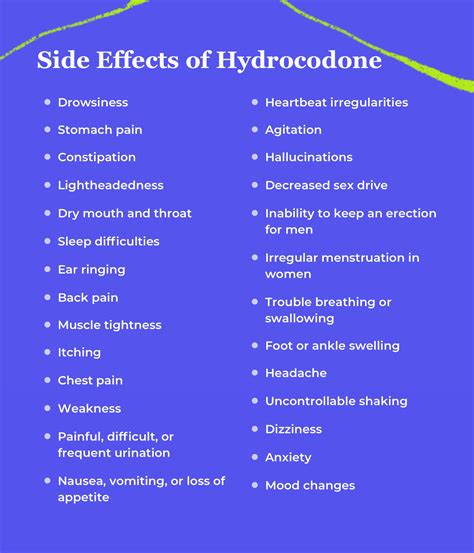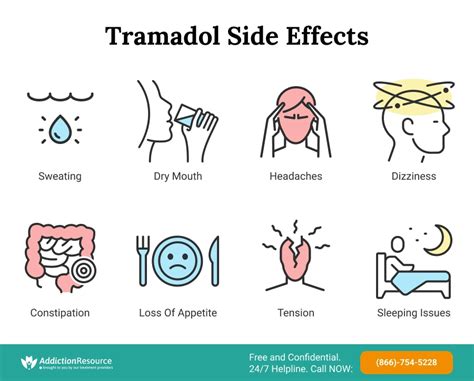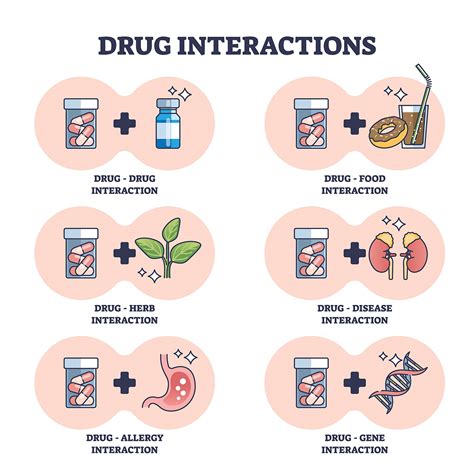Intro
Discover Hydrocodone Acetaminophen side effects, including addiction, drowsiness, and liver damage. Learn about overdose risks, interactions, and withdrawal symptoms.
Hydrocodone acetaminophen is a widely prescribed medication for managing moderate to severe pain. It is a combination of two active ingredients: hydrocodone, an opioid pain reliever, and acetaminophen, a non-opioid pain reliever and fever reducer. While hydrocodone acetaminophen can be effective in alleviating pain, it is essential to be aware of its potential side effects to ensure safe and responsible use.
The importance of understanding hydrocodone acetaminophen side effects cannot be overstated. As with any medication, especially those that combine an opioid with another active ingredient, there is a risk of adverse reactions. These side effects can range from mild and temporary to severe and potentially life-threatening. Being informed about the possible side effects of hydrocodone acetaminophen empowers patients to monitor their health, recognize potential issues early, and seek medical help when necessary.
Moreover, the opioid component of hydrocodone acetaminophen, hydrocodone, has been a focus of concern due to its potential for abuse, dependence, and addiction. The risks associated with opioid use have led to increased scrutiny and regulation of these medications. Understanding the side effects and taking the medication as prescribed are crucial steps in mitigating these risks. Healthcare providers play a vital role in educating patients about the safe use of hydrocodone acetaminophen, including its potential side effects and the importance of adherence to the prescribed dosage.
Common Side Effects of Hydrocodone Acetaminophen

The common side effects of hydrocodone acetaminophen include dizziness, drowsiness, nausea, vomiting, constipation, and headache. These effects are typically mild to moderate and may diminish as the body adjusts to the medication. However, it is essential to report any side effects to a healthcare provider, as they can sometimes indicate a more serious issue or the need for a dosage adjustment.
Less Common but Serious Side Effects
Less common but potentially serious side effects of hydrocodone acetaminophen include allergic reactions, such as hives, itching, and difficulty breathing; severe drowsiness; confusion; and abdominal pain. Any of these symptoms should prompt immediate medical attention.Severe Side Effects and Risks

Severe side effects and risks associated with hydrocodone acetaminophen include respiratory depression, which can be life-threatening; liver damage, particularly due to the acetaminophen component; and addiction or dependence on the hydrocodone component. The risk of these severe side effects underscores the importance of using hydrocodone acetaminophen only under the guidance of a healthcare provider and strictly according to the prescribed regimen.
Special Considerations and Warnings
Special considerations and warnings are necessary for certain populations, including the elderly, children, and individuals with specific health conditions. For example, older adults may be more susceptible to the sedative effects of hydrocodone acetaminophen, increasing the risk of falls. Children should not be given hydrocodone acetaminophen without a healthcare provider's explicit instruction, due to the risks of respiratory depression and other severe side effects.Interactions with Other Medications

Hydrocodone acetaminophen can interact with other medications, either exacerbating side effects or reducing the efficacy of one or both drugs. For instance, combining hydrocodone acetaminophen with other central nervous system depressants, such as alcohol, benzodiazepines, or other opioids, can increase the risk of respiratory depression, sedation, and other adverse effects. It is crucial for patients to inform their healthcare providers about all medications, supplements, and substances they are using to avoid potential interactions.
Managing Side Effects
Managing side effects of hydrocodone acetaminophen involves a combination of preventive measures, lifestyle adjustments, and, in some cases, additional medications. For example, to mitigate constipation, patients can increase their fluid intake, consume a high-fiber diet, and engage in regular physical activity. If side effects persist or worsen, patients should consult their healthcare provider, who may adjust the dosage or recommend alternative treatments.Long-Term Use and Dependence

Long-term use of hydrocodone acetaminophen can lead to dependence and addiction, primarily due to the hydrocodone component. Signs of dependence include needing increasingly higher doses to achieve the same level of pain relief and experiencing withdrawal symptoms when attempting to stop or reduce the medication. Healthcare providers should closely monitor patients on long-term hydrocodone acetaminophen therapy for signs of dependence and adjust treatment plans as necessary to minimize this risk.
Withdrawal Symptoms
Withdrawal symptoms from hydrocodone acetaminophen can occur when the medication is suddenly stopped or significantly reduced, especially after prolonged use. These symptoms may include restlessness, irritability, insomnia, diarrhea, and in severe cases, seizures. A healthcare provider should supervise the tapering off of hydrocodone acetaminophen to manage withdrawal symptoms safely and effectively.Conclusion and Future Directions

In conclusion, while hydrocodone acetaminophen is a valuable medication for pain management, its use must be approached with caution and a thorough understanding of its potential side effects. By being informed and vigilant, patients and healthcare providers can work together to minimize risks and maximize the benefits of this medication. Future research and development are focused on creating safer, more effective pain management options, including alternatives to opioids for certain types of pain.
Call to Action
For those who have experienced side effects from hydrocodone acetaminophen or are seeking more information on safe medication use, it is essential to consult with a healthcare provider. Sharing personal experiences and asking questions can help raise awareness and promote responsible medication practices. By engaging in open and informed discussions about hydrocodone acetaminophen and its side effects, we can work towards better pain management strategies that prioritize both efficacy and safety.What are the most common side effects of hydrocodone acetaminophen?
+The most common side effects include dizziness, drowsiness, nausea, vomiting, constipation, and headache.
Can hydrocodone acetaminophen be addictive?
+Yes, the hydrocodone component of hydrocodone acetaminophen can lead to dependence and addiction, especially with long-term use.
How can I minimize the risk of side effects from hydrocodone acetaminophen?
+To minimize risks, take the medication exactly as prescribed, inform your healthcare provider about all other medications and substances you are using, and monitor your health for any signs of adverse effects.
We invite you to share your thoughts and questions about hydrocodone acetaminophen side effects in the comments below. Your input can help others understand the importance of responsible medication use and the need for open communication with healthcare providers. By working together, we can promote safer and more effective pain management practices.
